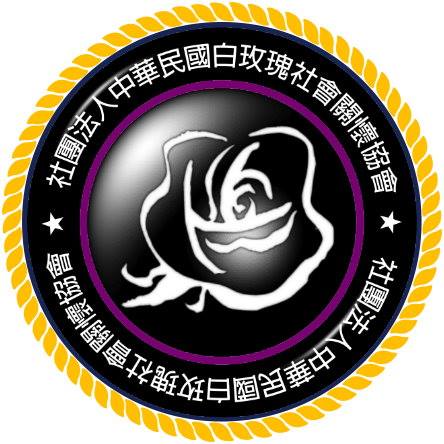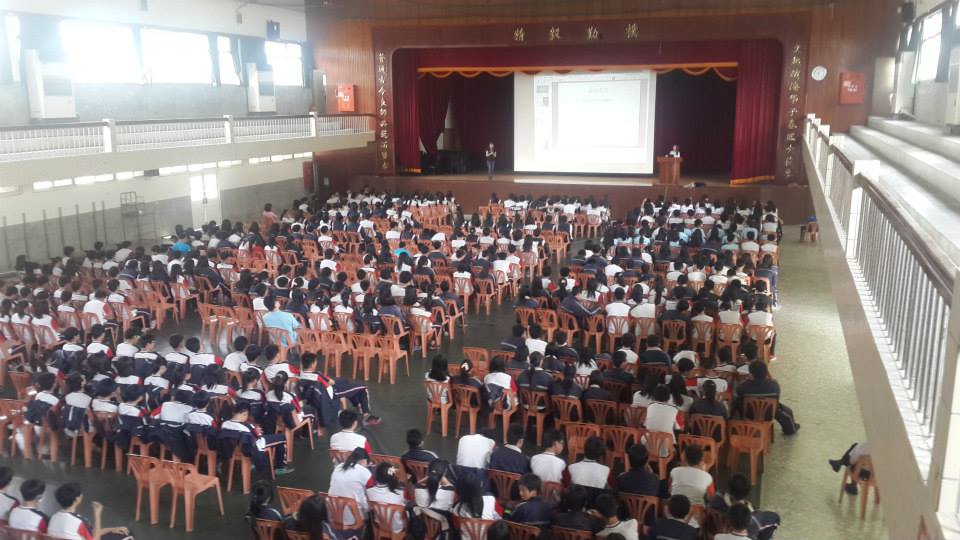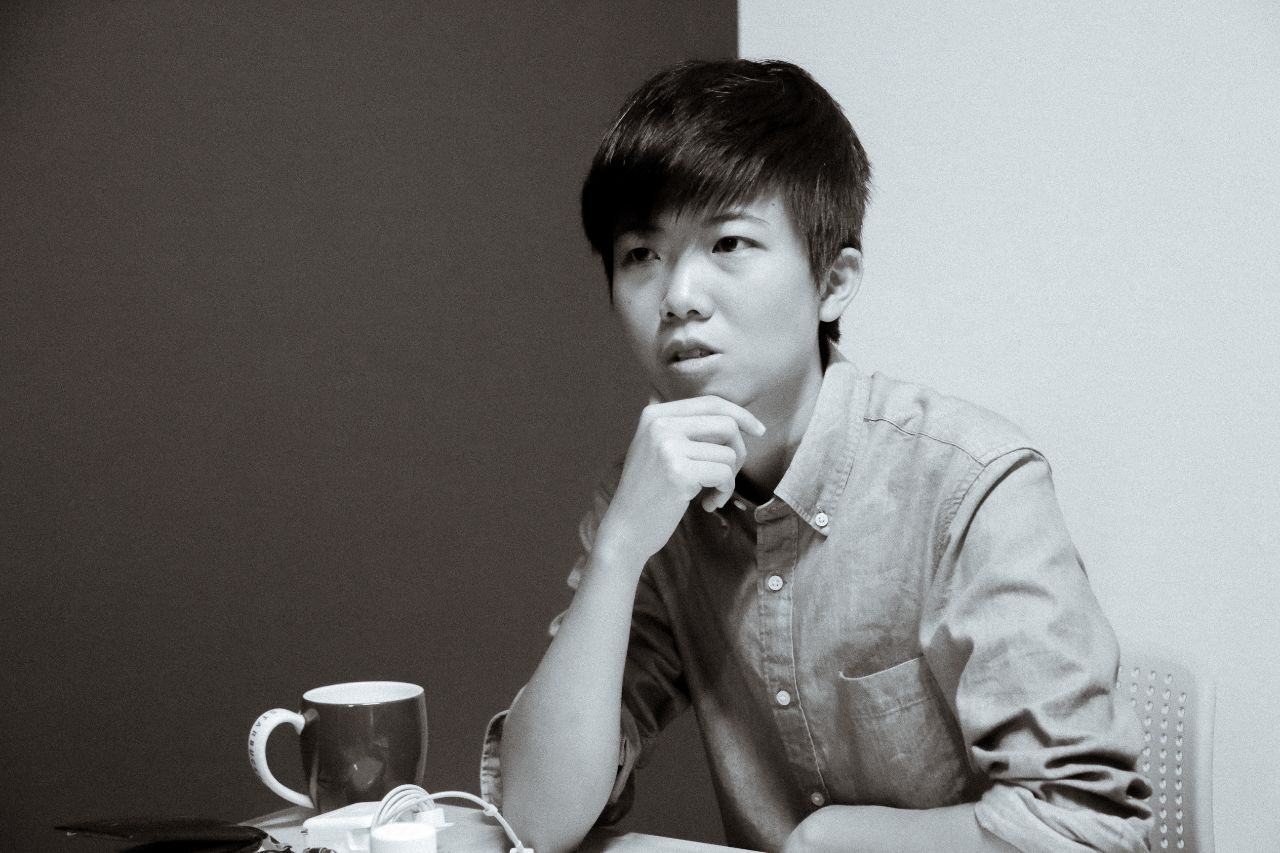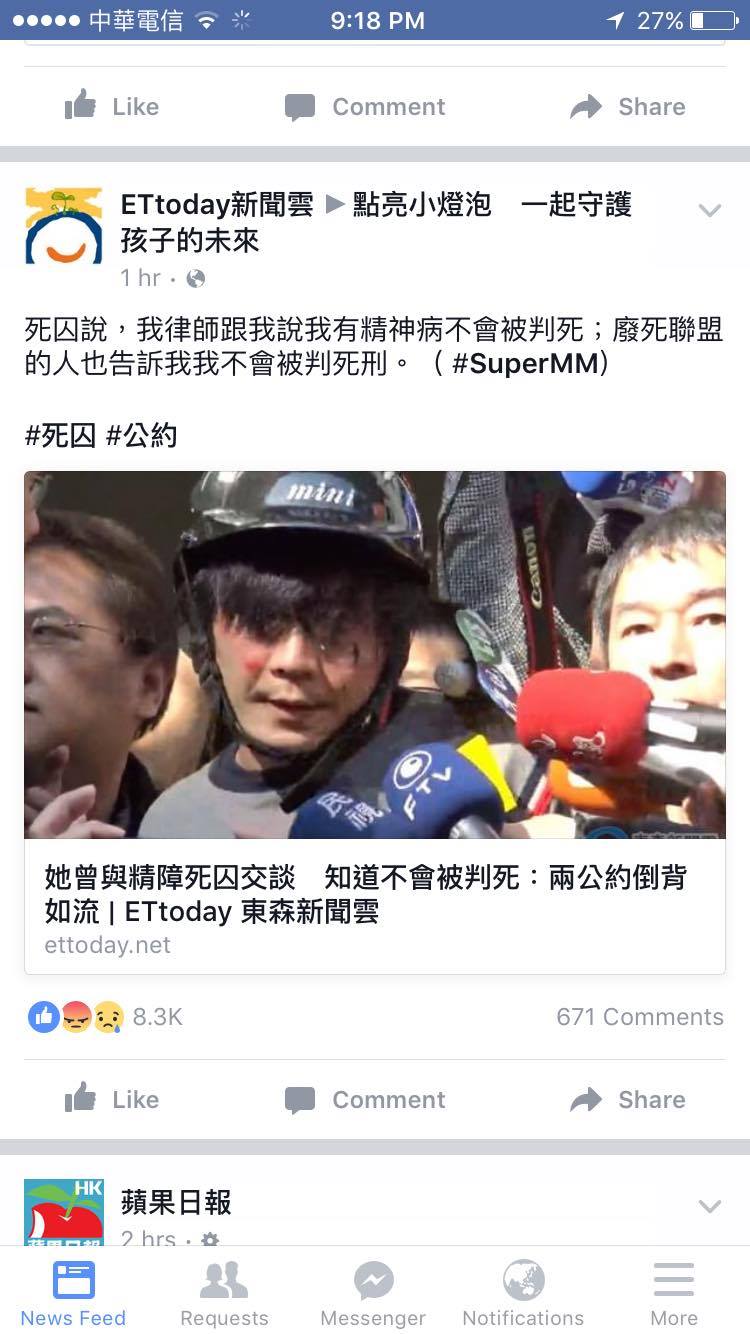by Phu-Pheng
語言:
English
Photo Credit: dfic.cn
THE GHASTLY random killing of a four-year-old girl in Neihu, Taipei on Monday has garnered widespread attention, nationally and internationally. What has almost simultaneously been triggered is a reinvigoration of the debate over the abolition of capital punishment in Taiwan. However, it is to be noted that this is hardly a real exchange of ideas, even by the standard of the Wild West that is the Internet, but more like a campaign of persecution against social activists who advocate the abolition of death penalty.
An Event-Dependent, Moralized Debate
WHILE THE debate on the abolition of death penalty can be traced back to 2000 when then Minister Of Justice Chen Ding-nan (陳定南) of the DPP outlined a plan to gradually phase out the death penalty, the debate on the issue itself only surfaces to mainstream media attention whenever there is a serious incident. Prior to the recent public killing of the four-year-old, in 2015 there was also a high profile random murder of a school girl in Taipei. The year before, Taiwan was shocked by a serial random stabbing incident on the MRT. In every case, the issue of death penalty were immediately brought up by the media before the criminals were even given any sentence, often in the form of long-drawn news coverage. The debates would then die down after the media shifted its focus to another subject.
A Cross-Partisan Issue
AN ANNUAL survey conducted by National Chung Cheng University, one which is widely cited, indicates that over 83.3% of surveyed Taiwanese citizens are against the abolition of capital punishment in 2016. Within the supporters of death penalty, over 54.1% indicate that they are “completely against the abolition of death penalty,” while only 29.2% “would reconsider their position if other measures are taken (to ensure enforcement of law and justice).” We can safely conclude that the preservation of the death penalty is, unlike many other public issues, one that holds a decisive majoritarian support in Taiwanese society.
Also unlike many other issues, It is far more difficult to draw a line that separates those who are capital punishment abolitionists and those who are not in terms of partisan affiliations. While advocacy for abolition of the death penalty is most pronounced in social activist subculture, as exemplified by the Social Democrats and Miao Poya in particular, archenemies of the activist communities such as President Ma Ying-jeou himself have also voiced the general prospect of gradually eliminating death penalty from the legal system. The former KMT Minister of Justice Wang Ching-feng (王清峰) even defiantly refused to approve several execution requests by tabling them which in effect obstructs the legal decisions made by the court system. To be sure, these sentiments within the KMT remain tenuous and passive on their stance, as contrasted to the social activists who work to abolish capital punishment.
At the same time, KMT heavyweights such as current chairperson Hung Hsiu Chu, former legislator Tsai Cheng-Yuan, and former mayor of Taipei Hau Lung-Bin have all publicly denounced abolition of capital punishment. It is also notable that prominent Sunflower movement activist Lucifer Chu (朱學恒), also known as the “Otaku God,” has published an article in defense of death penalty.
 White Rose Social Care Association logo. Photo credit: White Rose Social Care Association
White Rose Social Care Association logo. Photo credit: White Rose Social Care Association
Yet, opinion leadership on the death penalty is only visible among those who already advocate abolition, while anti-abolitionist sentiments and actions remain amorphous and even spontaneous. Here we might consider the developing movements around the White Rose Social Care Association (白玫瑰社會關懷協會).
Death Penalty Abolitionists and Anti-Abolitionists
THE “WHITE ROSES” are a group of parent-activists who organized a movement to remove a High Court judge from deciding a child molestation case in 2010. This was not a case that’s related to the death penalty, but stemmed from anger over the fact that the judge announced the four-year-old victim “did not show signs of resistance” and therefore only convicted the rapist for the offense of having intercourse with an underaged person (which still fell under the category of statutory rape). The White Rose Social Care Association organized a demonstration calling for the removal of a “clearly incompetent judge” from the case.
 White Rose Social Care Association activities. Photo credit: White Rose Social Care Association
White Rose Social Care Association activities. Photo credit: White Rose Social Care Association
In response to Monday’s tragedy, the White Roses have announced that they are calling for a mass rally around the Legislative Yuan on April 9th demanding the preservation of capital punishment, specifically phrased as “Anti-Abolition of the Death Penalty”
This time around, while the two cases have no direct relations, they do share the commonality of the victim being a young girl, and this operates as a rally call to parent-activists.
Nonetheless, this movement seems to inspire more than just concerned parents who somehow view capital punishment as a measure to protect their children from harm. Already manifesting on in the cyberspace is the mass wave of trolling against known activists in favor of abolition of the death penalty, most notable of whom is none other than Social Democratic Party member Miao Poya. Miao’s Facebook fan page has been showered with hateful comments over her dedication to the death penalty abolition movement.
 Miao Poya of the Social Democratic Party. Photo credit: 蘇思云
Miao Poya of the Social Democratic Party. Photo credit: 蘇思云
Many of these posts characterize abolitionists as people who condone or even defends criminals, even going as far as attributing to the demise of social morality to the abolitionists themselves. We see these sentiments echoed in celebrities such as Anthony Kuo who almost reflexively directed his criticism against abolitionists upon hearing the news of the girl’s killing. It is also not uncommon to encounter barely veiled homophobia against Miao or others, discriminatory comments against mental illness, or other unrelated reactionary sentiments on social media mixed in the threads discussing this subject.
Trial by Media?
IT WOULD BE hasty to conclude that the behavior of anti-death penalty abolition trolls or those who answer the call of the White Roses Association represent the majority of those who are against the abolition of capital punishment in Taiwan. It would also be false to claim that there is no real discussion on the viability of capital punishment going on. Yet the massive wave of rage against death penalty abolitionists remains at the front and center of the entire discourse so far, and one does not need to find the reason further than the closest television screen.
To begin with, it is notable that the media’s presentation of the debate over capital punishment is entirely under the emotional context of this being an unspeakable crime, which strongly insinuates a false correlation between one’s view on death penalty and one’s moral opinion over the criminality of this specific case. Capital punishment is an issue far beyond an instance of moral debate, but a systemic one that stems from the legitimacy of the judicial system, the fiscal viability of the criminal justice infrastructure, and involves even international relations, when one of the very few instance of Taiwan being addressed by a high ranking official of the European Union was Catherine Ashton’s condemnation of Taiwan’s execution of 6 criminals in 2012. A related factor of crucial importance is social attitudes towards people with mental illnesses, which the anti-death penalty abolition discourse only addresses in the vein of social darwinism.
Even if we fully accept the legitimacy and the functionality of the Republic of China’s justice system, which is directly descended from KMT’s authoritarian years when death penalty was largely used against political dissidents, it is still hugely illogical for the media to conclude that the court would definitely sentence the killer to death before any due process was fully carried out. Furthermore, the media also attempts to insinuate that the only reason that the killer would not get a death sentence would be due to the death penalty abolition movement. This is exemplified by multiple mainstream media’s coverage of Taipei city councilor Ying Xiao-wei’s claim that she spoke with a different murderer with mental illness, unrelated to this case, who “knows the Two Covenants like the back of his hand” and “does not fear getting a death penalty” as a result. Not only that, these articles specifically highlight the fact that the criminal Ying allegedly spoke to told her that “The people from the Death Penalty Abolition League told me that I would not be sentenced to death.” On this the media is far from a remote observer, but an actor who consciously intervenes in the discourse, as ETToday’s Facebook admin even went into anti-death penalty abolition Facebook communities to post their articles.
 ETToday posting in anti-death penalty abolition communities
ETToday posting in anti-death penalty abolition communities
On this subject the media not only has a clear bias, but also a probable agenda. It is hard to discern why they have an interest in stirring up public animosity against the death penalty abolition movement. What is clear is that thus far, they are succeeding.


 White Rose Social Care Association logo. Photo credit: White Rose Social Care Association
White Rose Social Care Association logo. Photo credit: White Rose Social Care Association White Rose Social Care Association activities. Photo credit: White Rose Social Care Association
White Rose Social Care Association activities. Photo credit: White Rose Social Care Association Miao Poya of the Social Democratic Party. Photo credit: 蘇思云
Miao Poya of the Social Democratic Party. Photo credit: 蘇思云 ETToday posting in anti-death penalty abolition communities
ETToday posting in anti-death penalty abolition communities